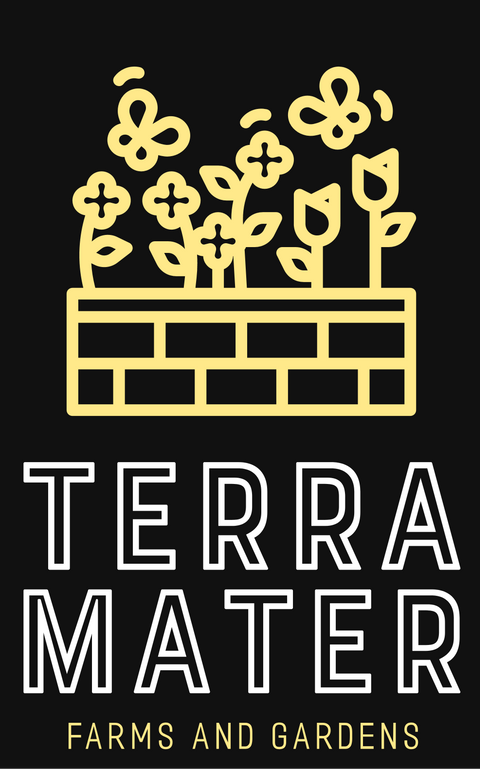Peach Melba Dwarf Nasturtium Seeds (Tropaeolum majus) – Creamy petals with peach centers; edible blooms with peppery flavor for gardens & salads.
Minimum: 25+ Seeds
Bring a burst of color and flavor to your garden with the Peach Melba Dwarf Nasturtium (Tropaeolum majus) — a compact heirloom variety loved for its delicate cream-colored petals, vibrant peach throats, and edible, peppery blooms. This cheerful annual thrives in poor soils and sunny conditions, rewarding gardeners with continuous flowers from spring to frost. Each bloom is not only stunning but also edible, adding a gourmet twist to salads, desserts, and herbal teas.
Named after the famous dessert, Peach Melba, this nasturtium combines beauty, versatility, and culinary value in one charming package. With its compact, mounding habit, it’s ideal for containers, borders, raised beds, or edible landscapes, where it doubles as a pollinator attractor and natural pest deterrent.
🌱 Plant Information
-
Botanical Name: Tropaeolum majus
-
Common Name: Dwarf Nasturtium, Peach Melba Nasturtium
-
Plant Type: Annual
-
Height: 10–12 inches tall
-
Spread: 12–16 inches wide
-
Light Requirements: Full sun (tolerates partial shade)
-
Soil Type: Well-drained, moderately fertile to poor soil
-
Watering: Low to moderate; prefers slightly dry conditions once established
-
Bloom Period: Late spring through fall
-
USDA Zones: Annual in all zones; may self-seed in Zones 9–11
-
Flower Color: Creamy ivory with rich peach or apricot centers
-
Edibility: Entire plant is edible (flowers, leaves, and seeds)
🌼 Why Grow ‘Peach Melba’ Nasturtium?
This award-winning dwarf variety is a gardener’s dream for both ornamental and edible uses. The bicolor blooms, creamy petals surrounding warm peach centers, create a soothing, elegant contrast in garden beds and containers. The compact, non-trailing habit makes it perfect for smaller gardens or spaces where traditional nasturtiums might spread too aggressively.
Beyond its ornamental appeal, Peach Melba is edible from leaf to seed. The flowers have a peppery, cress-like flavor, while the young leaves and seed pods add a zesty bite to salads and pickles. It’s a favorite for chefs, herbalists, and pollinator gardeners alike.
🍃 Edible & Medicinal Uses
-
Flowers: Use as colorful edible garnishes in salads, soups, or desserts. Their subtle peppery note pairs well with vinaigrettes and citrus dressings.
-
Leaves: Tender young leaves can be eaten raw for a spicy kick, similar to arugula.
-
Seeds: Unripe seeds can be pickled as “poor man’s capers.”
-
Medicinally: Nasturtium leaves and flowers are rich in vitamin C and natural antibiotics, known to support respiratory and immune health.
🌿 Growing Instructions
Sowing:
-
Direct Sow: After danger of frost has passed, sow seeds ½ inch deep directly into garden beds or containers.
-
Spacing: 10–12 inches apart.
-
Indoor Start (Optional): Sow 2–3 weeks before transplanting. Nasturtiums dislike root disturbance, so use biodegradable pots if starting indoors.
-
Germination: 7–14 days at 65–70°F.
Care Tips:
-
Avoid overly rich soil, too much nitrogen encourages foliage over flowers.
-
Water moderately; allow soil to dry slightly between waterings.
-
Deadhead spent blooms to extend flowering.
-
In containers, use a well-draining potting mix and provide full sun.
🌸 Garden & Design Ideas
Peach Melba is perfect for gardeners looking to combine function, flavor, and beauty:
-
Container Gardens: Compact habit makes it perfect for pots, window boxes, and raised beds.
-
Borders & Edging: Creates a low-growing ribbon of color along paths or garden beds.
-
Companion Planting: Deters aphids, whiteflies, and squash bugs. Excellent companion for tomatoes, cucumbers, beans, and brassicas.
-
Pollinator Gardens: The blooms attract bees, butterflies, and hoverflies, making them valuable for ecosystem health.
-
Edible Landscapes: Adds ornamental beauty while being fully edible, an ideal choice for farm-to-table gardens.
Companion Plants: Kale, cabbage, radish, cucumber, and beans.
🐝 Pollinator & Ecological Benefits
‘Peach Melba’ is more than a pretty flower, it’s a biodiversity booster. The open, nectar-rich blooms attract bees, bumblebees, and beneficial hoverflies, enhancing pollination in nearby crops. Meanwhile, nasturtiums serve as a trap crop, drawing aphids and pests away from vegetables like lettuce or cabbage, reducing the need for pesticides.
This dual role as a pollinator magnet and pest deterrent makes nasturtiums a cornerstone of organic and permaculture gardens.
🌞 Tips for Success
✅ Plant in well-draining soil and avoid high-fertility areas for best blooms.
✅ Water sparingly; nasturtiums prefer slightly dry soil.
✅ Deadhead regularly to prolong blooming and encourage new growth.
✅ Allow some flowers to set seed if you’d like natural reseeding for next season.
✅ Perfect for container gardeners and urban growers seeking compact, colorful plants.
💛 Why Gardeners Love It
-
Compact & container-friendly – great for patios or small gardens.
-
Edible and ornamental – every part of the plant has a purpose.
-
Fragrant, pollinator-attracting blooms from spring to frost.
-
Natural pest repellent – ideal for organic gardening.
-
Easy to grow – thrives even in poor soil and hot weather.
-
Unique color palette – creamy petals with soft peach throats add elegance.
🌸 Summary
The Peach Melba Dwarf Nasturtium (Tropaeolum majus) is a delightful, dual-purpose heirloom that adds both beauty and utility to your garden. With its soft ivory petals kissed with warm peach centers, this variety is a showstopper in containers, borders, and edible gardens alike. Loved for its sweet fragrance, edible flowers, and pollinator appeal, ‘Peach Melba’ is an essential plant for gardeners who cherish elegance, sustainability, and flavor in one.
Whether you’re growing it for its culinary versatility, natural pest control, or charming blooms, this nasturtium will fill your garden with color, scent, and life from early summer to frost.




